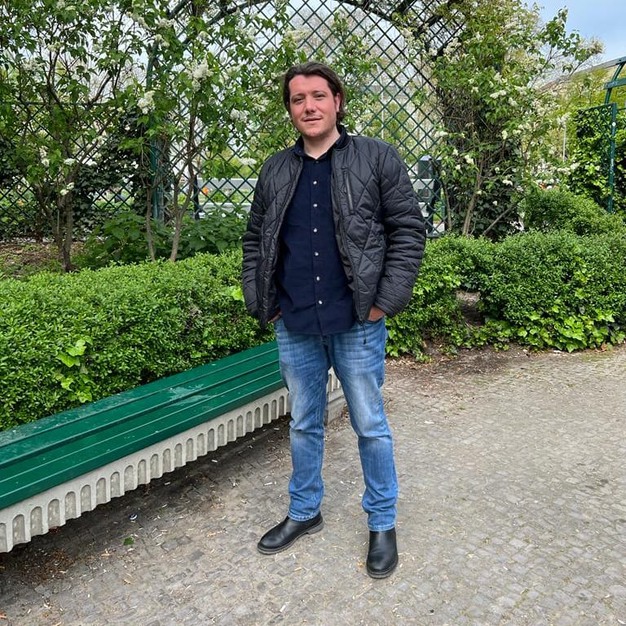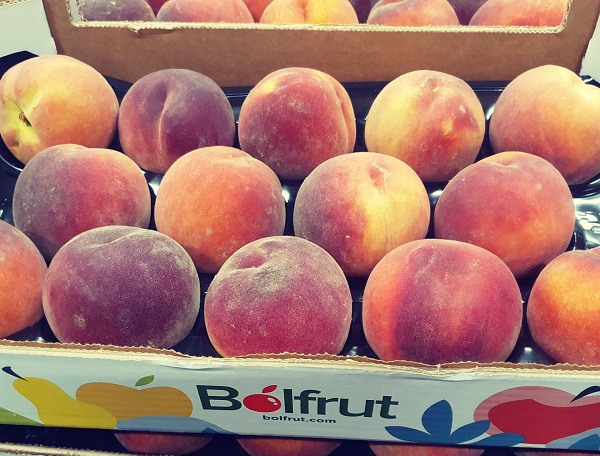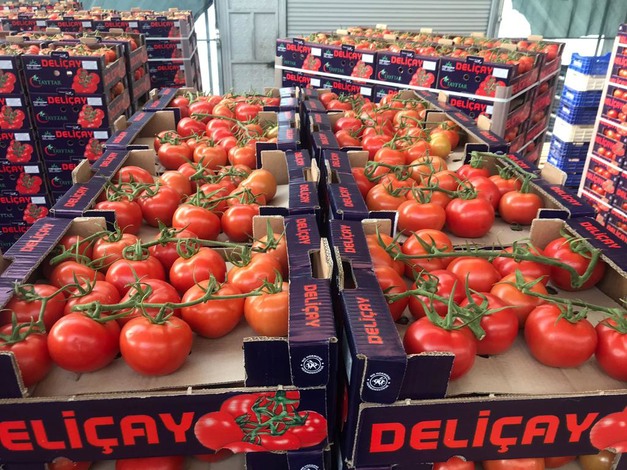Currently, Ambrosia Frucht Ltd offers peaches from the northwest of Turkey, for example from the Bursa region, Managing Director Halil Sarikoc tells us. "We buy the peaches directly from the growers. Other stone fruits are also available for the summer season, but figs for the European market are also currently very interesting. However, demand is not as high as for vegetables at the moment."

Halil Sarikoc
Halil Sarikoc moved to Germany from Turkey a few years ago to study economics. At the same time, he worked for a fruit and vegetable importer and then founded his own company, Ambrosia Frucht, about a year and a half ago, importing products from Spain and Turkey and selling them mainly to German wholesale markets.
Special program for German food retailers with Anadolu Etap
For the current season, Sarikoc offered only 100 tons of peaches to get an approximate idea of the potential for the product in the coming seasons. "For nectarines, we were again able to offer 140 tons. For next season, I am planning a special program for the supermarkets, with a special producer called Anadolu Etap, which is one of the best in Turkey. Currently, I am looking for a way to bring this product to the German market."
"The quality of the peaches and nectarines was amazing. In the case of the latter, it is a variety that is also grown in Spain, as the traditional variety from Turkey does not have a long shelf life. With apricots, again, there are several varieties."

200 trucks of TOVs for food retailers
During summer production, the biggest buyers of Sarikoc's products were mainly wholesale markets. "Last winter season, I marketed large volumes of TOVs. This season, tomatoes are quite high-priced. Last year, I started importing tomatoes quite late, only in mid-February. Then, within three weeks, we imported 47 trucks that came from the Netherlands."
Sarikoc is currently working on a special program for a German supermarket chain. "We plan to sell TOVs during the winter season, with a target of 200 trucks. The season starts at the beginning of November and ends around the end of May. I always work with greenhouses that produce with sustainable energy and have a low carbon footprint."
"Although wholesalers are still important partners, of course, the main production site is focused on retail. I'm looking for the best quality products at the best prices and a way to create a sustainable supply chain from grower to consumer." In addition, Sarikoc emphasizes that he is concerned about selling sustainable, clean and green products for German retailers.

Certifications are a must
It was not easy for his producers in Turkey to obtain GLOBALG.A.P. certification, as the production site has been rather slow to develop. However, he says he talks to growers to make production regionally controlled and sustainable, and to keep the carbon footprint as low as possible. "I always push our growers to get GLOBALG.A.P or Grasp certified. I always prefer to buy certified products. Currently, we are also trying to get Turkish peppers certified for the German market."
Environmental protection more important than profit
"Inflation or the crisis in the Turkish economy has definitely affected us. Although we trade in the euro currency and not the Turkish lira, everyone has to find a way to deal with gas prices. For example, last year we paid 4,800 euros for a delivery from Turkey to Germany, while this year we had to pay 6,000 euros for the same delivery. The economic crisis has also driven up production costs in Turkish agriculture, which in turn has affected the prices of products," Sarikoc said. "For me, it's not so much about money or profit, but about our environment. Preserving our environment and nearly CO2-free production are more important than money."
Images from Ambrosia Frucht GmbH
For more information:
Halil Sarikoc
Ambrosia Frucht GmbH
Friedrich-Engels-Allee 186
42285 Wuppertal
Tel: +49 202 496 57 515
Fax: +49 202 496 57 517
E-Mail: info@ambrosiafrucht.com
Internet: https://ambrosiafrucht.com
